- +91 8332005536
- |
- info@learnersbyte.com
- I
- Hyderabad

Become a Full Stack Developer: Master Front-End and Back-End Development
Learn the skills to design, develop, and deploy modern web applications with our Full Stack Development course. This comprehensive program covers both front-end and back-end development to make you job-ready
- Master front-end technologies like HTML, CSS, and JavaScript
- Learn server-side programming with Node.js and Express.js
- Work with databases like MongoDB, including CRUD operations
- Deploy web applications using modern tools
- 12 Weeks of Intensive Online Training
4.5
I 20+ Reviews

Full Stack Developer training in Hyderabad - Course Details
Our Full Stack Developer training in Hyderabad offers comprehensive learning in front-end and back-end development. The course covers core technologies like HTML, CSS, JavaScript, React, Node.js, Express.js, and MongoDB. You’ll gain hands-on experience building fully functional web applications, from user interfaces to server-side logic and database management. This program includes real-world projects and deployment practices, preparing you for industry challenges. Designed for beginners and professionals, it equips you with in-demand skills for roles like Full Stack Developer, Web Developer, and Software Engineer. Enroll today to start your journey in Hyderabad’s thriving tech ecosystem.
Course Details:
- Duration : 3 Months (12 Weeks)
- Classroom Sessions: 4 Hours/Week
- Student Effort (Self-Study): 3 Hours/Day
Pre-Requisites:
No prerequisites required – this Full Stack Development course is beginner-friendly and open to everyone
Outcome:
Students will gain practical skills in
- Frontend (React.js)
- Backend (Node.js, Express)
- Databases (MongoDB/PostgreSQL)
- Authentication
- API Development
- Cloud Deployment and Security
Modules
Month 1: Foundations of Full Stack Development
Week 1: Introduction to Web Development
• Understanding how the web works (Client-Server Model, HTTP/HTTPS, APIs)
• Overview of Full-Stack Development (Frontend, Backend, Database,
Deployment)
• Setting up a development environment (VS Code, Git, Node.js, npm, Postman)
Week 2: Frontend Basics (HTML, CSS, JavaScript)
• HTML5 (Semantic elements, Forms, Tables)
• CSS3 (Flexbox, Grid, Media Queries)
• JavaScript Fundamentals (ES6+, DOM Manipulation, Event Handling)
• Hands-on Project: Basic portfolio website
Week 3: Advanced Frontend Development
• JavaScript (Async/Await, Fetch API, LocalStorage)
• Introduction to React.js (Components, Props, State)
• React Hooks (useState, useEffect)
• Hands-on Project: Interactive To-Do List with React
Week 4: Responsive Design & UI Frameworks
• CSS Frameworks (Bootstrap, TailwindCSS)
• React Router & Context API
• Hands-on Project: Responsive Multi-Page Website
Month 2: Backend Development & Databases
Week 5: Introduction to Backend & Node.js
• Node.js & Express.js Basics
• REST API Development (CRUD Operations)
• Middleware & Authentication Basics (JWT, bcrypt)
• Hands-on Project: RESTful API for a Blog
Week 6: Database Management
• SQL (PostgreSQL/MySQL) vs NoSQL (MongoDB)
• CRUD Operations in MongoDB with Mongoose
• Integrating Backend with Database (Express + MongoDB)
• Hands-on Project: User Authentication System
Week 7: Advanced Backend & Authentication
• Advanced Authentication (OAuth, JWT)
• Role-Based Access Control
• File Upload & Image Handling
• Hands-on Project: User Dashboard with Authentication
Week 8: API Integration & Cloud Deployment
• Third-Party APIs (Payment Gateway, Social Logins)
• Cloud Deployment (Vercel, Netlify, Render, Heroku)
• CI/CD Basics (GitHub Actions)
• Hands-on Project: Full Stack E-Commerce App (Frontend + Backend)
Month 3: Advanced Topics & Real-World Applications
Week 9: DevOps & Security Best Practices
• Docker Basics & Containerization
• Security Best Practices (CORS, XSS, CSRF)
• Logging & Error Handling
• Hands-on Project: Secure API Service with Logging
Week 10: Microservices & Scalable Architecture
• Monolithic vs Microservices Architecture
• Introduction to GraphQL
• Hands-on Project: Microservices-Based Application
Week 11: Final Capstone Project
• Choose a full-stack project (e.g., Blogging Platform, Job Board, Task
Management App)
• Apply Agile methodologies (Trello, Jira)
• Weekly Code Review & Debugging Sessions
Week 12: Resume, Interview Preparation & Job Readiness
• Writing a Technical Resume & LinkedIn Optimization
• Mock Interviews (DSA, System Design, Project Discussion)
• Contributing to Open Source / Building a Portfolio on GitHub
Why Learners Byte ?
-
Courses designed by Experts
Our courses are expertly crafted by IIT alumni and industry-experienced professionals -
26+ Years Of Experience
We trained 1,00,000+ students with more than 25% Placements to our students -
Recognized by AICTE
our programs meet the highest standards of quality and industry relevance. -
Expert Corporate Training
Leverage our extensive experience in corporate training with hands-on, impactful programs that drive employee success
-
Official Skills Enablement Partner of VTU
Proud Partner of Visvesvaraya Technological University to deliver industry-aligned, future-ready skills -
Comprehensive Course Offering
A wide range of courses covering the latest in cloud computing, DevOps, AI/ML, data science, and full stack dev. -
Strong Industry and Technology Partnerships
Our robust connections with leading industries and technology partners enable students with certifications -
Flexible Delivery Options
Access to online, onsite, and hybrid training options with flexible payment options
Full Stack Developer Course - Eligibility & Pre-requisites
Our Full Stack Developer course is designed for graduates eager to start or advance their careers in web development. This beginner-friendly course requires no prior coding experience, making it accessible to learners from any field. Basic computer literacy and a keen interest in learning programming are the only prerequisites. Whether you’re a recent graduate or a professional looking to upskill, this course equips you with the tools and knowledge to excel as a Full Stack Developer.
Recognized by AICTE
100% Placement Assistance
Official Skills Enablement Partner of VTU
Internships & Experience
360° Skills Enablement
Frequently Asked Questions about AI & ML course in Hyd
What will I learn in this Full Stack Developer course?
You’ll learn front-end technologies like HTML, CSS, JavaScript, and React, back-end frameworks like Node.js and Express.js, and database management with MongoDB
Who is eligible for this full stack developer course?
This course is ideal for graduates, job seekers, and professionals with basic knowledge of Javascript is eligible for this course.
What career opportunities are available after completing the course?
Roles include Full Stack Developer, Web Developer, Software Engineer, and Application Developer across industries like IT, e-commerce, and fintech
Does this course include hands-on projects?
Yes, the course includes real-world projects, such as building responsive websites, e-commerce platforms, and deploying applications.
How much does this course cost ?
For detailed fee structure and Payment options- Contact us at 👇